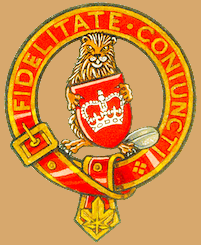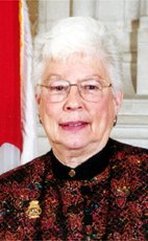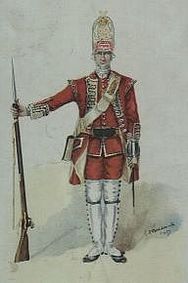 Uniform of the 22nd of Foot
Uniform of the 22nd of Foot Richard Wilson re-enlisted in 1771 and was made a Lieutenant of a Company of Artillary by Governor Tryon. He fought in the final battle against a group of North Carolina rebels known as the 'Regulators' at Alamance. Afterwards he was given a commission as a Lieutenant of the Garrison at Fort Johnston, where he would serve until the 18th of July, 1775.
By the time the first rumblings of the revolution had started Lt. Richard Wilson was doing well for himself having a plantation, two houses, two lots in the town of Brunswick, and one house in the town of Crosscreek. He later built another house at Fort Johnston. He was married in 1767 and had four children. His wife died around 1776 from an unrecorded cause.
Lt. Richard Wilson and Captain John A. Collet were ordered by Governor Martin to dismantle the fort and transport the guns to Boston as the fort's defence could not be guaranteed due to lack of supplies and desertions (some likely due to the same ultimatum given to Wilson). They managed to save the guns, and embark for Boston. As the men waited for transport they watched their property being burned by the rebels. They arrived in Boston on July 21, 1775, delivering to General Gage "a very valuable and costly set of artillery, arms, stores, and ammunition belonging to the Crown". Both Lt. Richard Wilson and Captain John A. Collet would join the Royal Fencible Americans, a loyalist regiment, serving under Lieutenant Colonel Joseph Gorham at Fort Cumberland, Nova Scotia. Richard Wilson would serve in the regiment until 1782 eventually rising to the rank of captain.
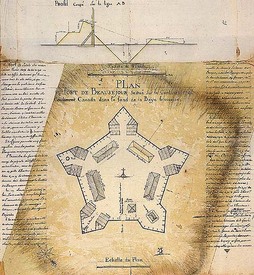 Fort Beausejour (aka Fort Cumberland)
Fort Beausejour (aka Fort Cumberland) 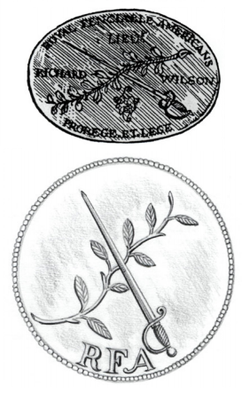 Belt buckle and uniform button
Belt buckle and uniform button Richard Wilson would continue his military career when he was made Lt. Col. of the Westmorland County Regiment of Militia consisting of two battalions. Militia drills were conducted on the field behind his house and provided a day of entertainment for the townspeople as the militiamen went through their maneuver.
Lt. Col. Richard Wilson died in 1810 having served king and country faithfully and well.
Loyally Yours,
A Kisaragi Colour
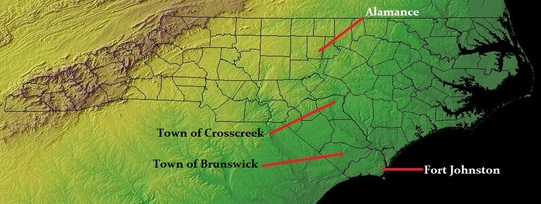
 RSS Feed
RSS Feed
